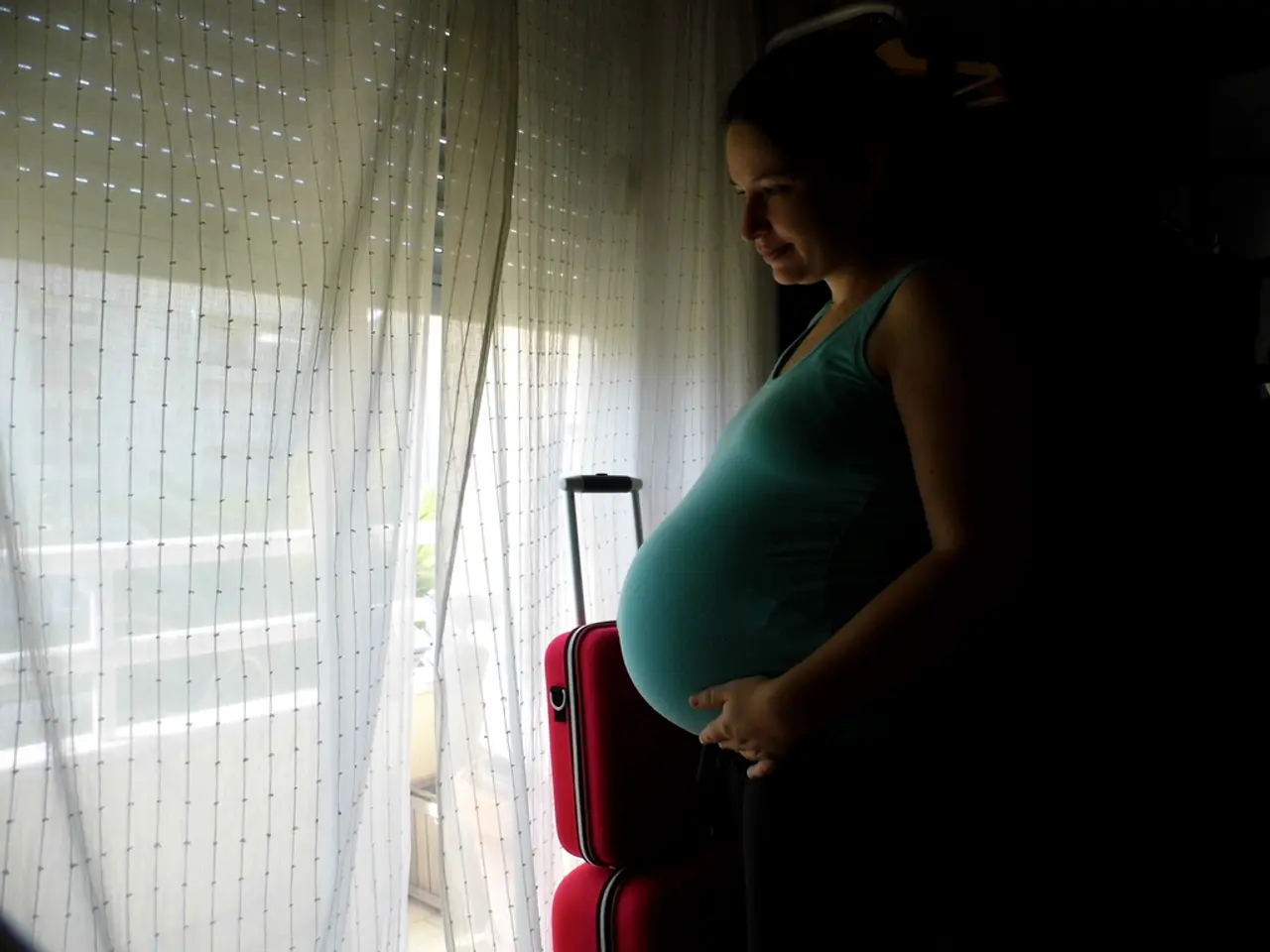Pregnancy and Lung Infection: An Overview, Potential Issues, and Remedies
Maternal pneumonia, a severe lung infection that can occur during pregnancy, is a potentially life-threatening condition that requires prompt attention and treatment. In this article, we delve into the symptoms, causes, and preventive measures associated with maternal pneumonia.
Pneumonia often begins with common cold or flu symptoms, such as a cough, sore throat, and congestion. However, as the infection spreads to the lungs, it can lead to more severe symptoms like difficulty breathing, chest pain, rapid breathing, and fever. Pregnant women experiencing such symptoms should contact their doctor's office immediately, as they may be at increased risk of complications.
Pregnant women are advised to have the flu vaccine to protect against influenza infection. It is recommended to get the vaccine before flu season begins in October. In addition to the flu vaccine, prompt treatment is crucial for preventing complications. Treatment for maternal pneumonia depends on whether a virus or bacteria caused the infection, and may include anti-viral medication, respiratory therapy, and other medical interventions.
Over-the-counter pain medications like acetaminophen can help reduce fever and manage pain, but it's crucial to consult a doctor first during pregnancy. In some cases, a doctor may prescribe antibiotics for bacterial pneumonia. Untreated maternal pneumonia can cause the body's oxygen levels to fall, which can affect the baby's health.
Certain risk factors increase the likelihood of contracting pneumonia during pregnancy. Pre-existing medical conditions such as asthma, anemia, chronic illnesses like diabetes or hypertension, and a high body mass index (BMI) can make pregnant women more susceptible to respiratory infections. Lifestyle factors, such as smoking, alcohol use, and poor nutrition, can also weaken the immune system and increase the risk of pneumonia.
Environmental and occupational exposures, including air pollution and frequent contact with young children or hospital/nursing home environments, can increase the risk of respiratory infections. Demographic and biological factors, such as advanced maternal age and non-white ethnicity, have been identified as potential risk factors for severe disease, although these may be confounded by socioeconomic and health system factors.
Preventing complications from pneumonia is possible by catching and treating the illness early. Anyone who develops a cold or flu during pregnancy should tell their doctor as soon as possible to help prevent illnesses from developing into pneumonia. By being aware of the symptoms, risks, and preventive measures, pregnant women can take steps to protect their health and the health of their unborn child.
- Maternal obesity, characterized by a high body mass index (BMI), can make pregnant women more susceptible to respiratory conditions like pneumonia.
- Pneumonia can lead to depression and other mental health issues during pregnancy, as the body's increased oxygen demands and potential oxygen levels falling can impact the woman's overall health.
- Prompt treatment, including prescribed antibiotics and respiratory therapy, is critical to preventing complications from pneumonia in pregnant women.
- Pfizer, among other pharmaceutical companies, develops medical solutions to combat various health-and-wellness issues, such as influenza and pneumonia, which can affect pregnant women and their unborn children.
- While recovering from pneumonia, pregnant women should avoid occupational risks like exposure to air pollution and frequent contact with young children or hospital/nursing home environments to lower the risk of contracting the illness again.
- Science has identified certain medical conditions associated with an increased risk of severe respiratory infections during pregnancy, such as asthma, anemia, diabetes, hypertension, and bipolar or depressive disorders.
- Women's health encompasses not only physical health but also mental health, making it crucial to monitor, educate, and provide holistic care to pregnant women who may be at increased risk of developing conditions like pneumonia and its associated complications.




